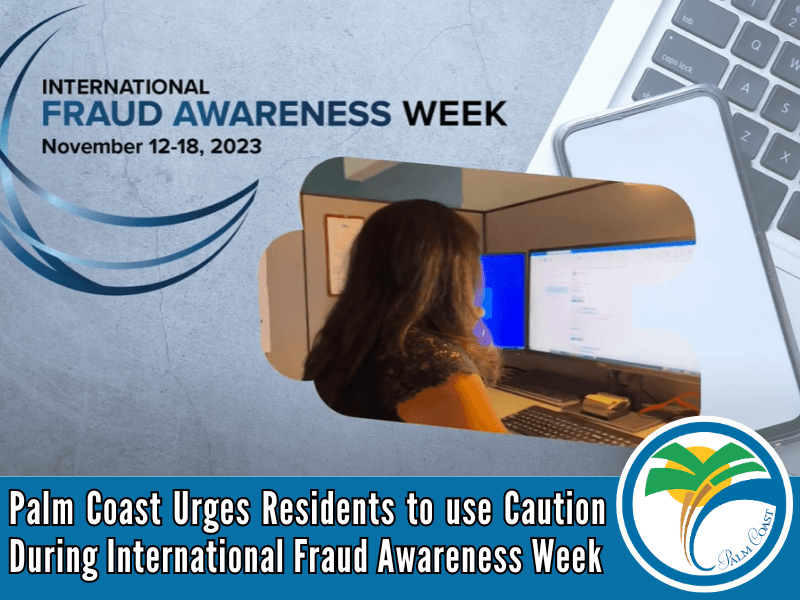City of Palm Coast Urges Residents to Use Caution Online During International Fraud Awareness Week
The City of Palm Coast is encouraging residents to safeguard their personal information and remain vigilant against potential fraud while shopping online this holiday season, particularly during International Fraud Awareness Week.
The City of Palm Coast Information Technology Department takes internet security seriously, as demonstrated in October when the department proudly collaborated with Cyber Florida to host an essential cybersecurity training event. This event brought together counties and municipalities, fostering a community of resilience against cyberattacks.
“The internet plays a crucial role in our daily lives, and it’s vital that we understand the associated risks,” said Doug Akins, Director of Information Technology. “As systems and processes continue to evolve, so do the tactics of online scammers. We at the City of Palm Coast are committed to empowering our community with the knowledge and tools to stay safe online during International Fraud Awareness Week and year-round.”
Throughout International Fraud Awareness Week, residents of Palm Coast can expect to see informative videos from members of the Information and Technology City staff, offering valuable tips on how to protect themselves online. These expert insights are especially relevant as we approach the busy holiday shopping season when cyberattacks and fraud attempts tend to rise.
Stay tuned for these helpful videos and join us in taking a stand against fraud and practicing internet security. Together, we can build a safer and more resilient community.
Stay informed with the latest news and information from the City of Palm Coast by following us on Facebook, Instagram, Twitter, YouTube, and LinkedIn. You can sign up for weekly updates by visiting www.palmcoastgov.com/government/city-manager/week-in-review.




